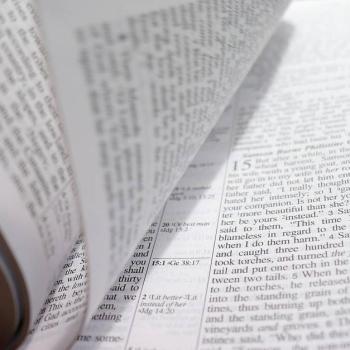It is precisely this "fundamental precept" that progressives and others are rejecting. What are the likely results? By publicly denigrating religion, they undermine respect for faith-based institutions. By denying that certain rights are natural and unalienable -- the gift of a Creator -- place all rights at the mercy of elites. By demanding a rigid separation of church and state, they pressure courts, schools and other public institutions to marginalize religious ideals. Yet, as many social scientists predict, the greater the decline of religious belief and practice, the greater the social breakdown -- and the more that government must intervene to fix it. Thus, by admitting no moral authority outside of the individual, progressives invite a massive expansion of government scrutiny, regulation, and control over everyday life.
Yet for the generation of Madison and Jefferson, the final check against government abuse of power was to be citizens animated by the moral claims flowing from their faith in God. That's why the Founders made religious liberty the "first freedom" of democratic government. They put the emphasis on freedom for religion: to create as much civic space possible for religious institutions to challenge the state and impart the virtues needed for citizenship. This, in part, was what they meant by a nation "under God."
Consider one of the fruits of America's understanding of faith and freedom: our deep tradition of social protest and social reform. Who led the decades-long fight to end slavery in the United States? It was Northern evangelicals, who petitioned lawmakers, rescued runaway slaves, and helped give birth to the Republican Party. Who launched massive rescue missions for thousands of poor families during the economic upheaval of the early twentieth century? It was that British import known as the Salvation Army. Who led the civil rights movement in the face of violent white supremacists and a hostile legal culture? A Baptist minister, the Reverend Martin Luther King, Jr., joined by brave foot soldiers from black churches around the country. Who now is leading America's campaign against the sexual trafficking of women and children around the globe? It is conservative Christians, mobilized through churches and non-governmental organizations.
In each case we see the energy and idealism of religious believers, unmolested by the secular state. America's historic commitment to religious liberty is what makes possible these great challenges to corrupt political and social regimes. In The Fourth Great Awakening and the Future of Egalitarianism, economist Robert Fogel says it's impossible to understand America's commitment to social justice apart from the moral influence of religion. Churches and the lay movements they spawned "have often served as critics of state policy and as advocates of individual rights," he writes. "They played a leading role . . . through which the common people have been drawn into the process of shaping American society."
No one is claiming, of course, that religious freedom is beyond abuse in the United States, either by pastors or politicians. William Livingston, an eighteenth-century Presbyterian leader in New York City, complained that "there is more Iniquity committed under the Robe, than is repented of under the Gallows." Fair enough. Religious belief has indeed been a source of incalculable human suffering. But the Founders, who were acutely aware of the legacy of sectarian violence in Europe, never became cynical about biblical religion.
By contrast, today's intellectual class has championed the idea of democracy divorced from the ideals and institutions of religion. Elections, political institutions, and an ethos of "tolerance" will keep the democratic machine running; no need for tough-minded belief or the "virtue-crats" who wear it on their sleeves.
Behind this thinking lurks an old utopian idea: the belief that human nature is ripening toward perfection, thanks to education, economic equality, science, and secularization. Progressives here and in Europe are animated by the secular ideals of the Enlightenment -- with its exaltation of the individual ego -- and oppose any religion that might stand in the way. How they manage to sustain this attitude, in light of the atrocities committed in the name of secularism in the last century, beggars the imagination.
Nevertheless, the 9/11 attacks have only deepened their hostility. Virtually all traditional religious views -- Catholic, Protestant, Jewish, Islamic -- are now considered a brand of "fundamentalism" that threatens civic peace and individual freedom. Thus liberal academic conferences probe the violent irrationality of faith, aided by silly books such as When Religion Becomes Evil and The End of Faith: Religion, Terror, and the Future of Reason. "While religious people generally are not mad, their core beliefs absolutely are," writes Sam Harris. "In fact, it is difficult to imagine a set of beliefs more suggestive of mental illness than those that lie at the heart of many of our religious traditions." Religion as pathology: Here is the revenge of Freud, only cruder and dumbed down for a mass audience.




